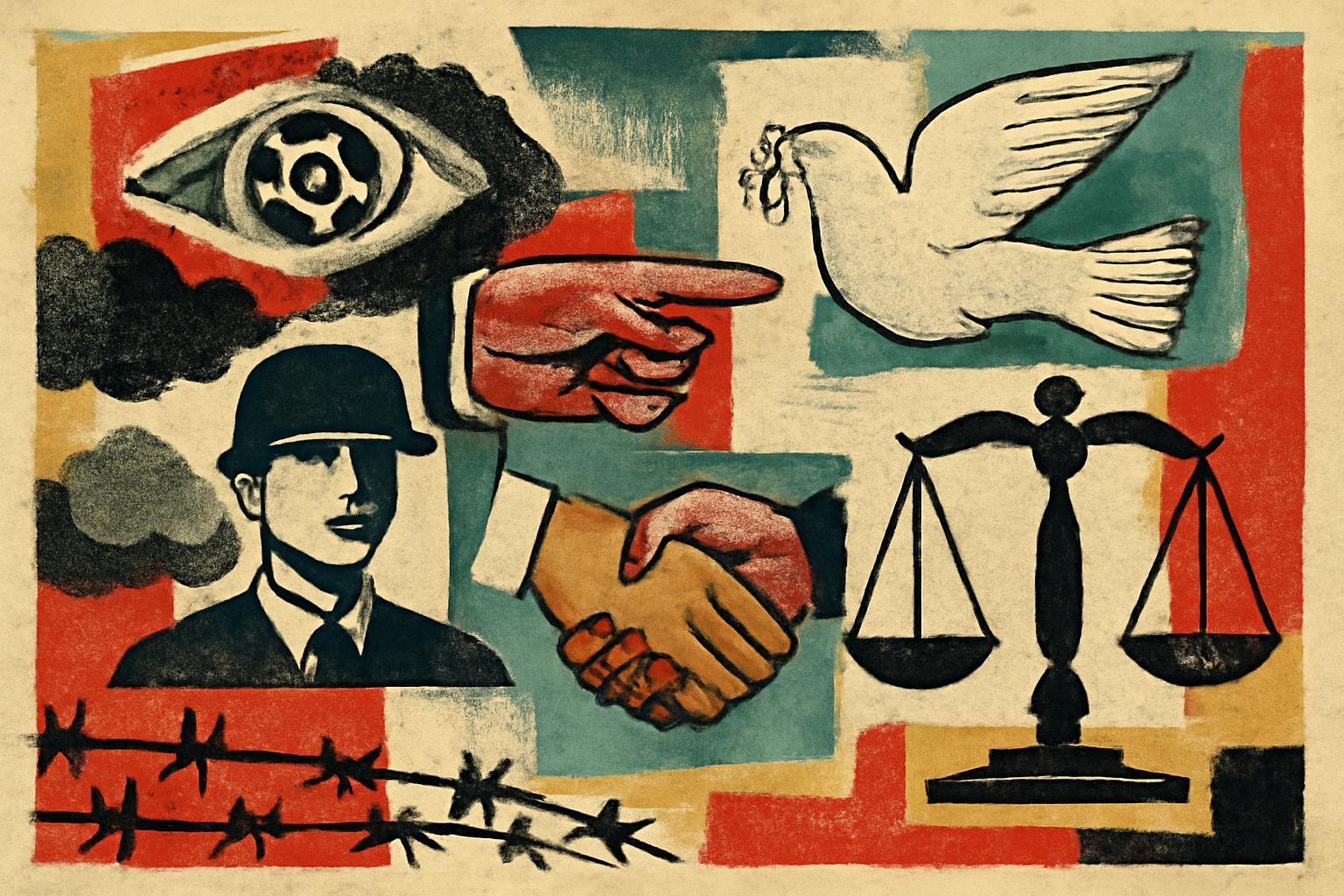The drumbeat of diplomacy and denial in great-power politics exposes the same flaw: centralized coercive power pretending it can engineer safety and order better than free association. Moscow insists on a step-by-step, expert-led prelude to any high-level talks, rejects propaganda, keeps leverage, and hints that a rapid halt to fighting without more concessions would wreck its aims. Kyiv and Europe are not buoyed by euphoria but relieved to glimpse a path, while Washington signals guarded outcomes. The battlefield cadence—talk, counter-position, retreat—continues, and no one trusts a pre-talk ceasefire that would leave hard questions unresolved. The idea of security guarantees for Kyiv and questions about NATO troops sit at the heart of the dispute, and the notion of “Finlandization”—Ukraine becoming a neutral protectorate—haunts discussions of the future. Time is the asset Moscow would like to buy with concessions it’s not ready to concede, while Europe breathes easier on a longer leash that still binds everyone to the risk of a spillover. This is not a triumph of peace, but a choreography of coercion in which the state pretends to broker safety while expanding its own prerogatives.
From a Hayekian lens, the whole enterprise demonstrates the knowledge problem writ large. No one—no summit, no cascade of “security guarantees,” no negotiated blueprint—can assemble and apply the dispersed, local knowledge embedded in millions of lives, contracts, and property arrangements across continents. The security architecture being contemplated rests on forecasts, incentives, and promises that a single centralized authority cannot reliably design or police. Propaganda, guarantees, and escalatory rhetoric substitute for real information, trust, and voluntary cooperation. The less the state pretends to know, the more dangerous its attempts to bind others by treaty or threat. The road to stability is not grand, top-down guarantees but the freedom for individuals, firms, and communities to experiment, trade, and form defensive coalitions of their own choosing—without an overarching state telling them what security looks like.
From Nozick’s rights-focused anthropology, the crux is who has the right to compel whom for what purpose. A state’s rhetoric about protecting ethnic populations or defending territories is legitimate only insofar as it protects individuals’ rights, not as a instrument of coercive designs on others’ sovereignty. If coercion, conquest, or the threat of sanctions is marshaled to force acceptance of a protectorate or a line drawn on a map, it violates the basic principle that individuals are ends, not means. The call for guarantees that bind other states or peoples to a particular security arrangement is a demand for a perpetual licensing of aggression—unless consent is genuinely voluntary and reciprocal. The right to secede, to withdraw, to live under institutions one chooses, and to trade with whomever one wishes is the only legitimate framework for peaceful coexistence; anything masquerading as security architecture that undermines that autonomy is illegitimate. The grim drama of Donbass and Crimea, of protective rhetoric masking coercion, is a textbook case for the minimal state that exists only to prevent force against rights, not to micromanage borders or to compel allegiance.
Rand would push this further by insisting that the moral baseline is rational self-interest anchored in individual rights and reasoned judgment, not collective sentiment or geopolitics. The elevation of national destiny over the lives and property of individuals is a moral corruption. The insistence on protecting “ethnic Russians” abroad or securing a buffer by any means reduces people to mere pawns in a grand strategic theater. Any diplomacy that legitimizes coercive power over others—treaties backed by the threat of sanctions, military aid, or intervention—undermines the rational egoist’s premise that a man’s life is his own to live by his own judgment. Self-government, voluntary exchange, and voluntary alliances—free to enter and exit—offer the only durable foundation for a lasting peace. The urge to immobilize an entire region through guarantees, to bind it to European or NATO security arrangements by force, is anti-life: it substitutes collective coercion for individual judgment and consent.
Put together, these perspectives amount to a radical thesis: the more a state claims to secure peace by coercive guarantees, the more it undermines liberty and invites miscalculation. The better path is to shrink the scope of power, restore the primacy of individual rights, and let peaceful competition—mutual defense pacts chosen freely, voluntary trade, and the exchange of ideas—do the heavy lifting. The modern drama underscores a timeless truth: security divorced from liberty is an illusion, prosperity secured by coercion is brittle, and the only durable safeguard against war is a world where people are free to live, trade, and associate as they choose, without rulers pretending to babysit their futures. The proper response to such a stalemate is not new layers of state guarantees, but fewer strings attached to state power and more room for voluntary, rights-respecting arrangements to form and reform as citizens choose.
